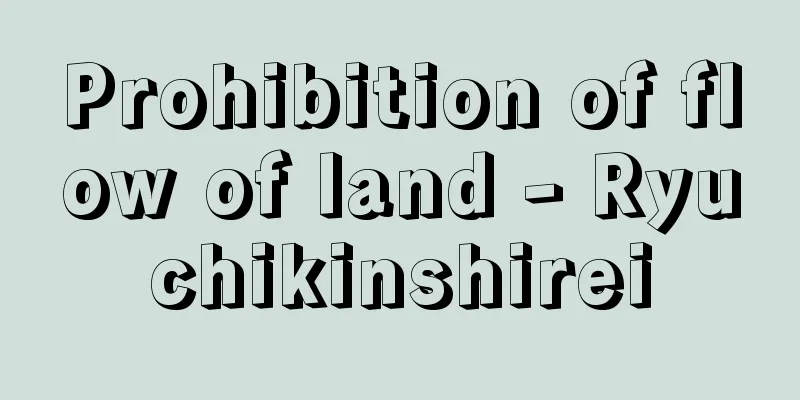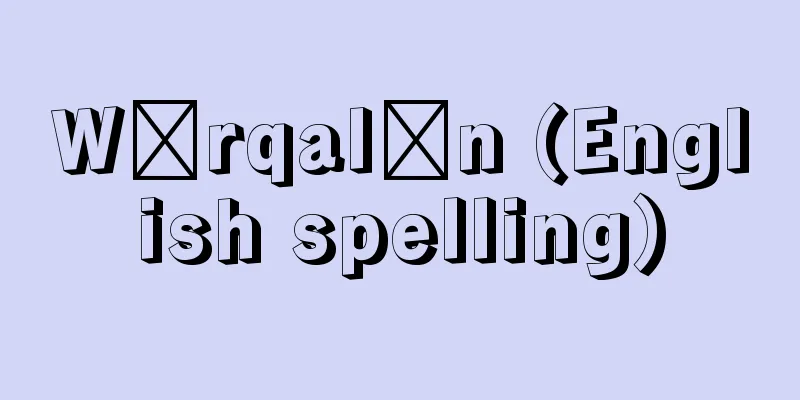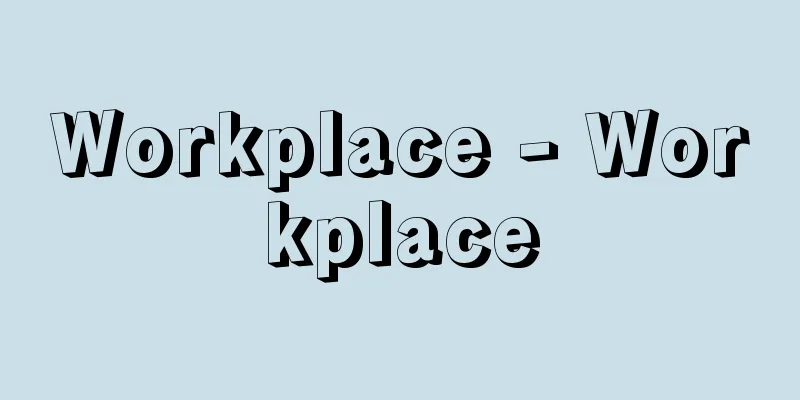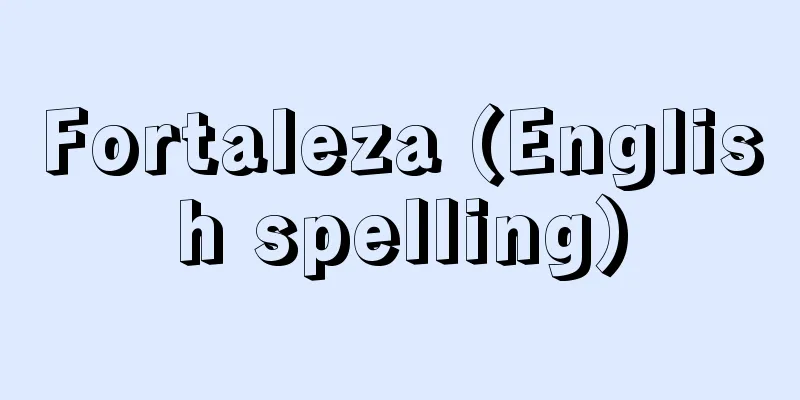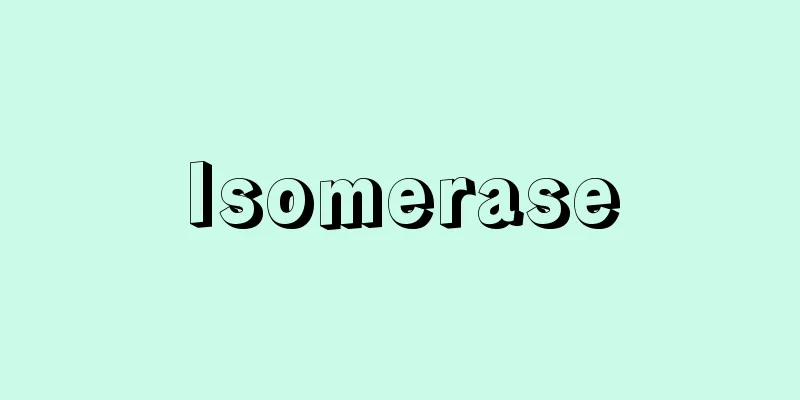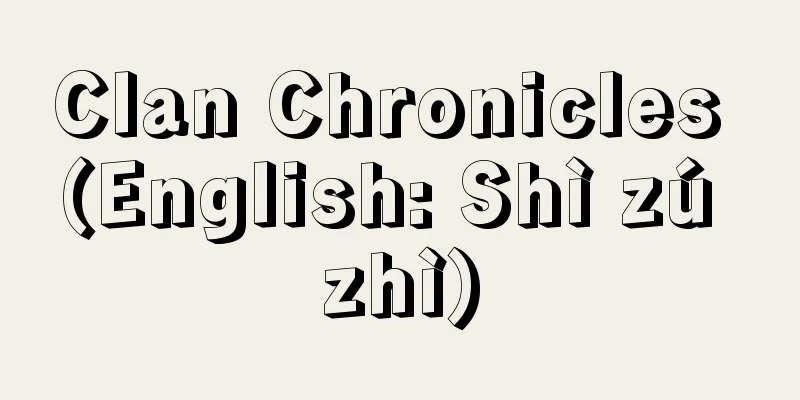General education - futsuukyouiku (English spelling) general education
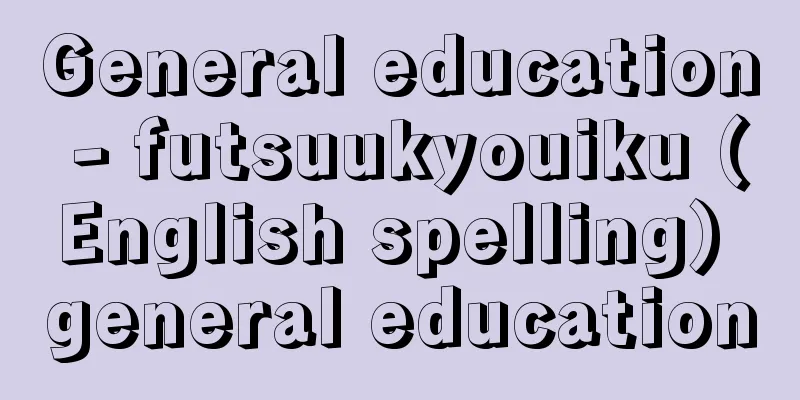
|
It means education that allows all people to acquire the basic knowledge, skills, and attitudes necessary for living as a member of society, and is used in contrast to specialized education and vocational education. In this respect, it is difficult to clearly distinguish it from "general education" conceptually. However, while the concept of general education was born from the tradition of free education since ancient Greece, and its aristocratic and liberal arts character has been modified in modern times, "ordinary education" has a stronger connotation of education for the general public. In Japan, the term "general education" appears in the Constitution, the Fundamental Law of Education, and the School Education Act, but this term has already been used in various educational laws since the Meiji period, as can be seen in Article 3 of the Education Act of 1879 (Meiji 12), which states that "elementary schools are places where ordinary education is imparted to children." [Tadayuki Hayashi] ContentsAccording to the School Education Act (1947), which stipulates the purpose of school education in Japan after the Second World War and the content of general education, elementary schools aim to provide elementary general education, junior high schools aim to provide secondary general education, and high schools aim to provide higher general education and specialized education. In order to achieve this purpose, the content of each school is set out as a goal. [Tadayuki Hayashi] primary schoolThe goals of elementary school education are made up of eight items, the main of which are to cultivate basic understanding and skills in the areas of food, clothing, shelter, industry, etc., necessary for daily life, a correct understanding and ability to use the Japanese language necessary for daily life, a correct understanding and ability to process quantitative relationships necessary for daily life, and the ability to scientifically observe and process natural phenomena in daily life. These goals form the structuring principle for various areas of educational activity in schools, such as Japanese language, arithmetic, science, and social studies, as well as moral education and special activities. [Tadayuki Hayashi] junior high schoolThe goal of junior high school education is further stated as "to cultivate basic knowledge and skills about occupations necessary in society, an attitude that values work, and the ability to choose a future path according to one's personality." This does not mean so-called vocational education. In junior high school education, where students have completed compulsory education and some will enter society and find a job after graduation, imparting basic understanding and skills about occupations and the ability to choose a future path is an important part of general education in junior high school. [Tadayuki Hayashi] Expanding the scopeModern nations, not just ours, have placed importance on general education as a part of compulsory education. In other words, general education has played a role in deepening mutual understanding among the people and generalizing and homogenizing the people's ideas, beliefs, values, and behavioral patterns. In this way, the nation has striven to maintain its unity, order, and peace. Furthermore, with the development of modern industrial society, education that provides vocational knowledge and skills, which were previously considered to be in opposition to one another, has been accepted as part of general education. Furthermore, in today's highly information-oriented society, the content of general education has become increasingly sophisticated, complex, and diverse. Thus, with the development of society, the content of general education as the basic education that all citizens should have in common has changed significantly. The movement toward curriculum reform in developed countries, such as the selection of educational content, was one manifestation of this response. Since the founding of modern nation states, with the establishment of the compulsory education system, general education has been confined to the narrow framework of school education. However, in order to educate citizens who can adapt to the highly developing and rapidly changing society of the future, general education will need to be reconsidered from the perspective of lifelong education, rather than being restricted by the framework of school education. [Tadayuki Hayashi] "The Essence of Education" by Hiroshi Maeda (1979, Tamagawa University Press)" ▽ "The Small Six Laws of Education" edited by Hitoshi Kaneko et al. (1982, Gakuyo Shobo) [Reference items] | | | |Source: Shogakukan Encyclopedia Nipponica About Encyclopedia Nipponica Information | Legend |
|
一般社会人として生活するうえに必要な基礎的な知識、技能、態度を、すべての人々に習得させる教育を意味し、専門教育、職業教育に対置して用いられる。この点で、「一般教育」と概念的にはっきり区別することはむずかしい。しかし一般教育の概念が古代ギリシア以来の自由教育の伝統から生まれ、その貴族主義的、教養主義的性格が近代的な修正を受けたのに対して、「普通教育」は一般民衆のための教育という意味合いが強い。 日本では、憲法、教育基本法および学校教育法に普通教育という用語が出ているが、この用語はすでに1879年(明治12)の「教育令」第3条に「小学校ハ普通ノ教育ヲ児童ニ授クル所」とあるように、明治以来の教育諸法令において使用されてきたものである。 [林 忠幸] 内容第二次世界大戦後のわが国の学校教育の目的および普通教育の内容を明記している学校教育法(1947)によると、小学校は初等普通教育を、中学校は中等普通教育を施すことを目的とし、高等学校は高等普通教育および専門教育を施すことを目的としている。そして、この目的を達成するために、目標としてそれぞれの内容が示されている。 [林 忠幸] 小学校小学校教育の目標は8項目からなり、おもなものをあげると、日常生活に必要な衣・食・住、産業等についての基礎的な理解と技能、日常生活に必要な国語の正しい理解と使用能力、日常生活に必要な数量的関係の正しい理解と処理能力、日常生活における自然現象の科学的な観察と処理能力などを養うこと、である。これらの目標は、国語・算数・理科・社会などの各教科および道徳、特別活動といった学校における教育活動諸領域の構成原理をなしている。 [林 忠幸] 中学校中学校教育の目標には、さらに「社会に必要な職業についての基礎的な知識と技能、勤労を重んずる態度及び個性に応じて将来の進路を選択する能力を養うこと」とある。これは、いわゆる職業教育を意味するものではない。義務教育終了の段階にあり、また卒業後は社会に出て職業につく者がいる中学校教育において、職業についての基礎的な理解と技能、将来の進路を選択する能力を身につけさせることは、中学校での普通教育の重要な内容をなす。 [林 忠幸] 領域の拡大近代国家は、わが国に限らず義務教育の内容として普通教育を重視してきた。つまり、普通教育は国民の相互理解を深め、国民の思想、信条、価値観および行動様式の一致をもたらす一般化、同質化の役割を担ってきたからである。それによって、国家はその統一と秩序と安寧とを維持しようと努めてきたのである。また、近代産業社会の発展に伴って、これまで相対立するかのように考えられてきた職業的知識や技能を与える教育も、普通教育の内容として受容されてきた。さらに、今日のような高度な情報化社会においては、普通教育の内容はますます高度化し、複雑、多岐にわたっている。このように、社会の発展とともに、国民として共通にもつべき基礎的教養としての普通教育の内容は著しく変化した。先進諸国における教育内容の精選といったカリキュラム改革の動きは、これに対応した一つの現れであった。 近代国家の成立以来、普通教育は義務教育制度の確立とともに、学校教育という狭い枠内に押し込められてきたが、高度に発達し、急速に変化する今後の社会に適応できる国民の教育のためには、普通教育は学校教育の枠に縛られず、生涯教育の観点から見直されなければならないであろう。 [林 忠幸] 『前田博著『教育の本質』(1979・玉川大学出版部)』▽『兼子仁他編『教育小六法』(1982・学陽書房)』 [参照項目] | | | |出典 小学館 日本大百科全書(ニッポニカ)日本大百科全書(ニッポニカ)について 情報 | 凡例 |
<<: Ordinary banks and special banks
>>: Ordinary accounting - Normal accounting
Recommend
Trnka (English spelling) Jiři Trnka
An animation artist active in Czechoslovakia. Bor...
Shinran - Shinran
A monk from the Kamakura period. Founder of the Jo...
Ryosenho - Ryosenho
In ancient Japan, laws stipulated marriages betwee...
Fujiwara no Munetada
He was a nobleman in the late Heian period. His f...
Mount Okuhotaka
The highest peak in the Hotakadake mountain range ...
Basic food - Kisoshokuhin
In terms of nutrition, these are the food groups ...
oil
…their chemical compositions are completely diffe...
Yatsushiro Plain - Yatsushiro Heiya
The southern half of the Kumamoto Plain is surrou...
I Action - Action
...The function in which the deviation between th...
Red-flowered night glory - Red-flowered night glory
...The seed coat is hard, so it is scraped off be...
Capa (Portugal) - Capa
…an outer garment worn over clothing to protect a...
Ojiya Chijimi - Ojiya Chijimi
Among the hemp fabrics woven in the Ojiya area of...
Seibu - Saimu
Date of birth and death unknown. A haiku poet of ...
Polyester - Polyester (English spelling)
A general term for polymers that have an ester bo...
Diffusion pump - Kakusan pump (English name) diffusion pump
A type of jet pump used to obtain a high vacuum su...
